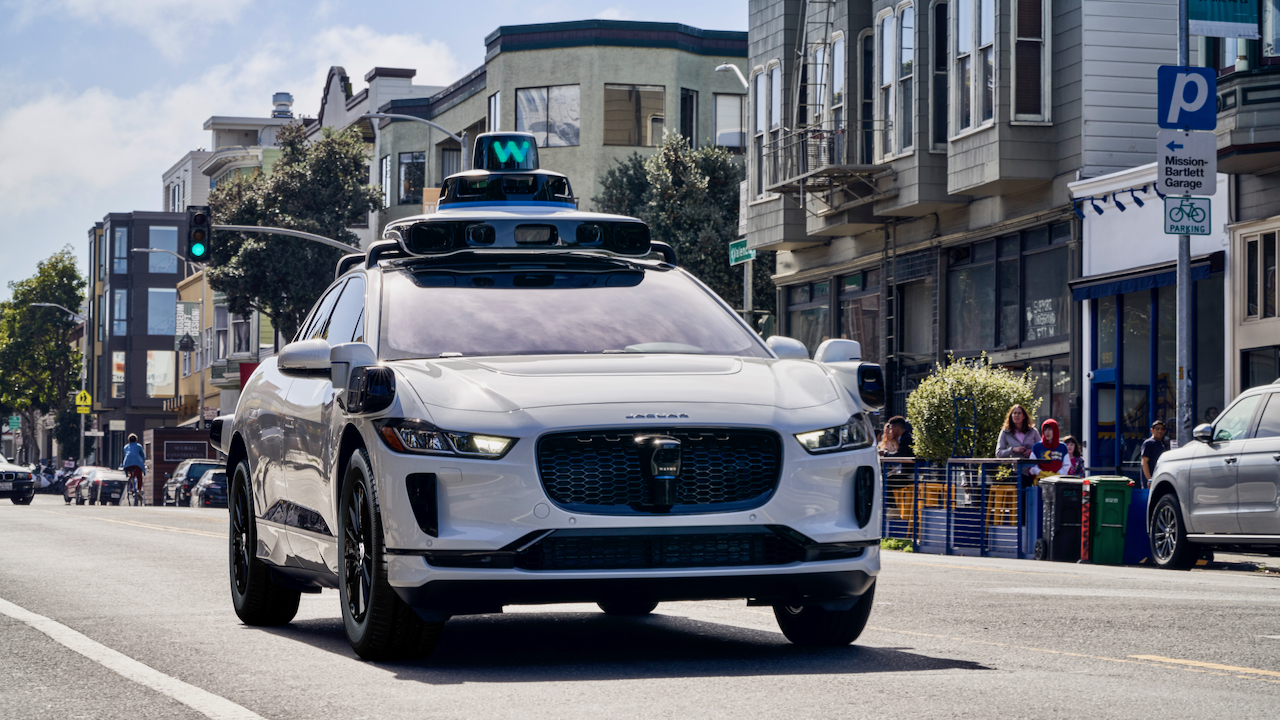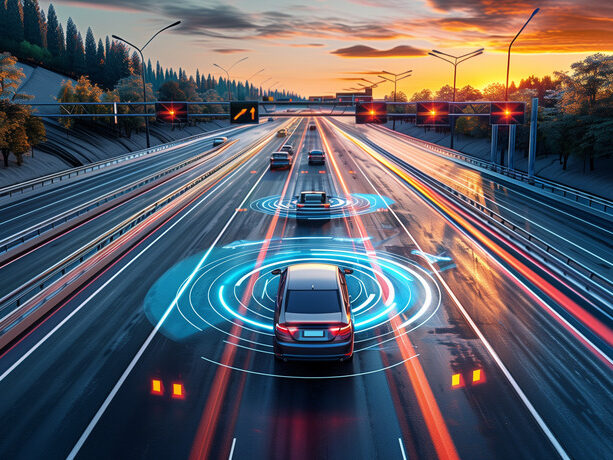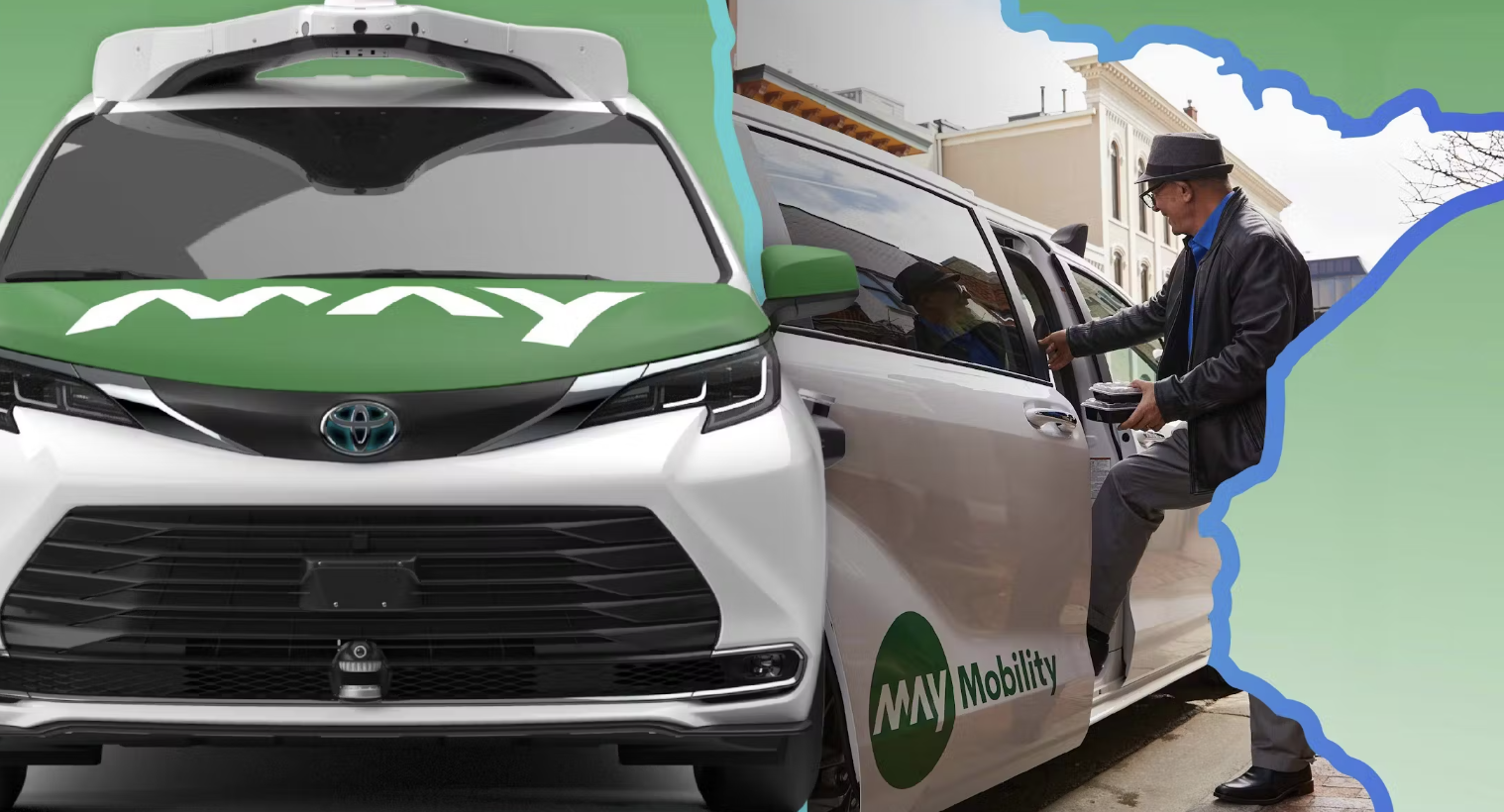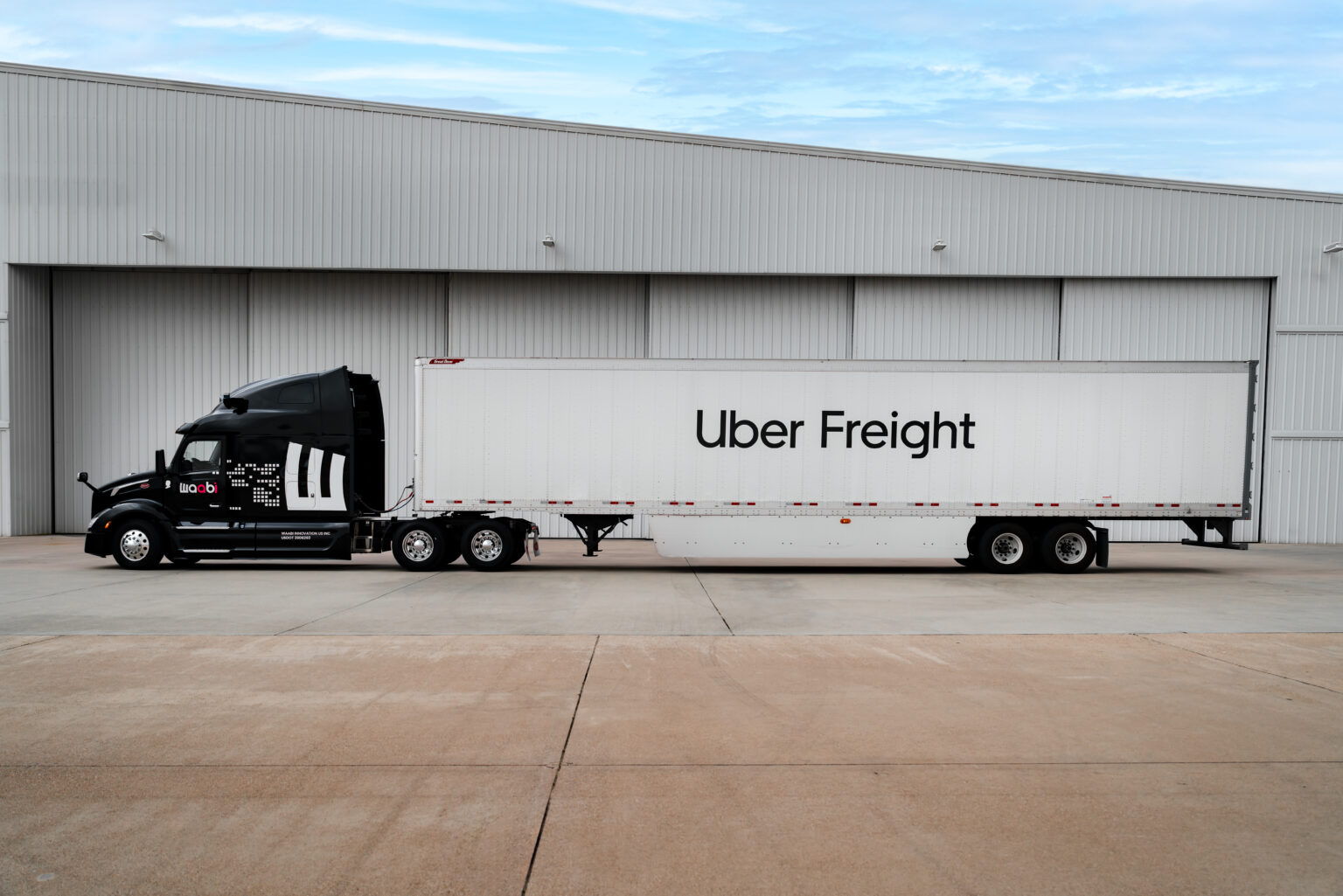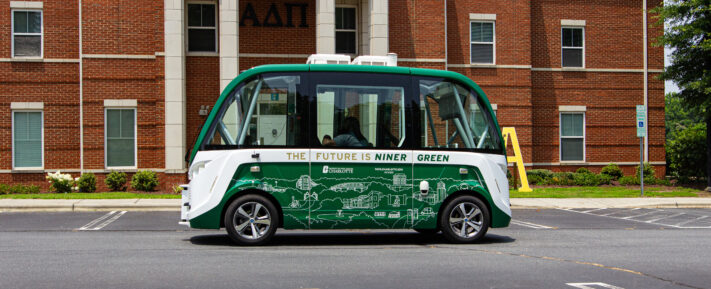AutoSens took place in Brussels from 19–21 September to highlight the ongoing developments in automated driving (AD) and advanced driver assistance systems (ADAS).
As these technologies continue to mature and their deployment becomes more mainstream, the event acted as a platform for engineers and scientists to become part of the industry-wide discussions surrounding their production and rollout.
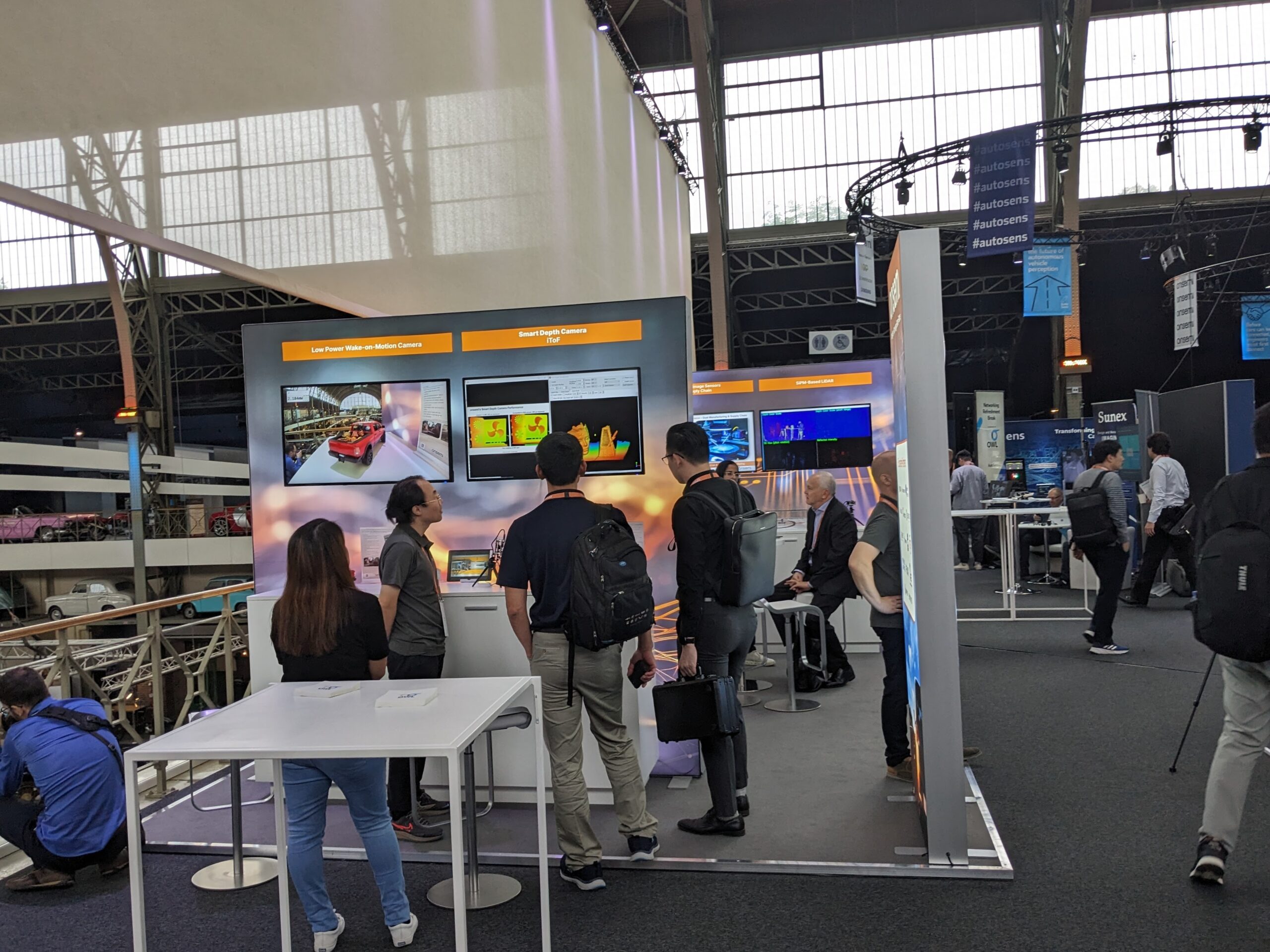
Throughout the event, AutoSens demonstrated the range of sensors, modules and software that can help deliver improved safety and convenience on roads.
For example, onsemi presented the benefits of its 2.1 µm Hyperlux image sensors for delivering enhanced performance to support the transition to higher levels of automation. Meanwhile, IntoPix showcased the JPEG XS lightweight compression standard that can compress data from multiple sensors without deteriorating the quality.
These developments are expected to help pave the way for a greater rollout of Level 3 automation, which requires the use of more sensors and higher-quality detection.
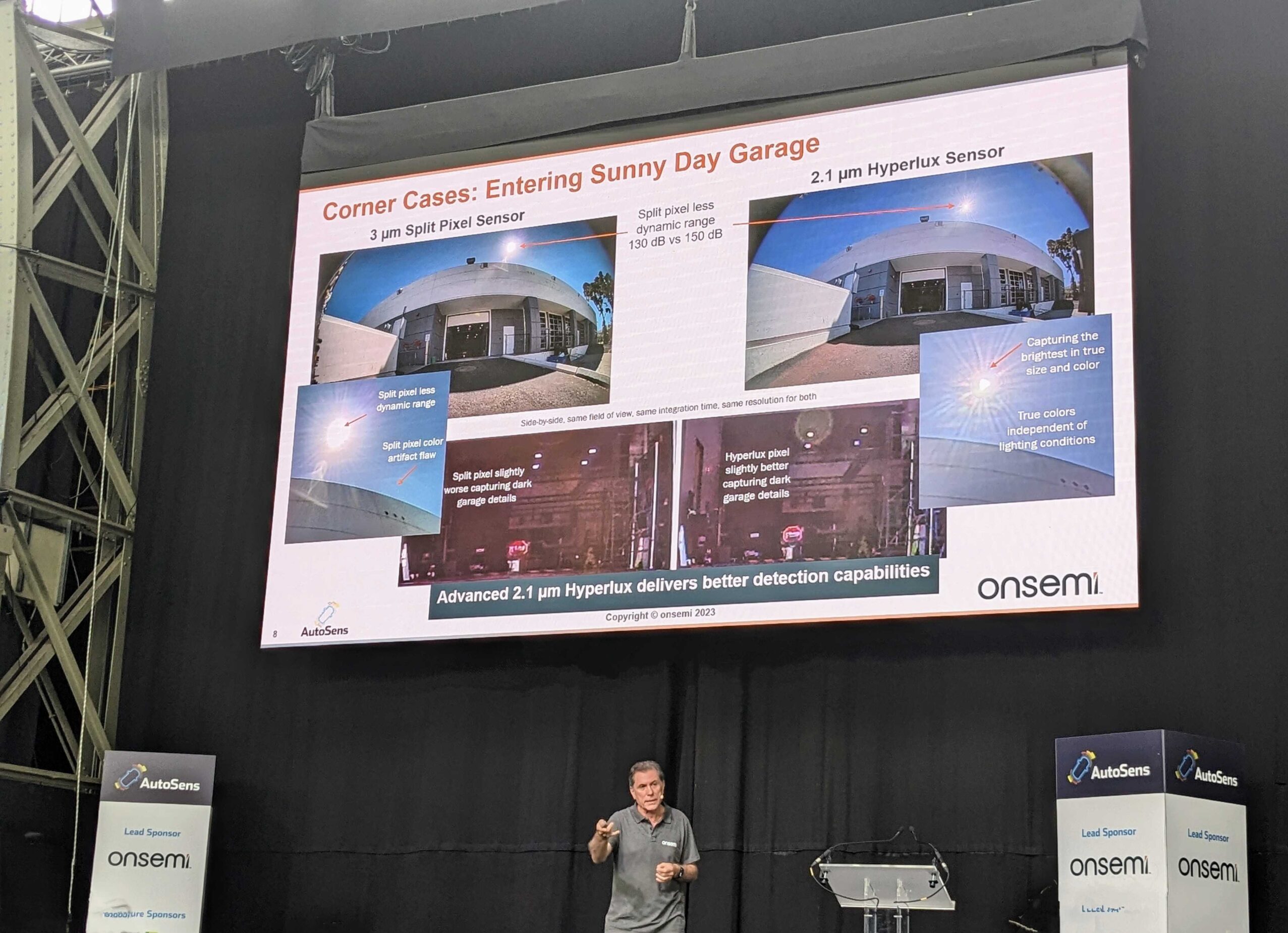
The impressive technology on display at AutoSens enabled the industry to showcase the leaps being made to deliver safer, more reliable automated vehicles. In turn, it should follow that the capabilities of emerging products can help combat the longstanding public concerns about the safety standards of autonomous cars.
However, during a panel discussion focused on how image quality in computer vision should be utilised for safety analysis, Patrick Denny, Associate Professor in Artificial Intelligence at the University of Limerick, acknowledged that as systems become safer and more complex, they also become less explainable for a wider audience. This creates a paradox for the public where people feel less able to trust and understand more complex technology, despite it offering higher levels of safety, he said.
Indeed, the public currently remains sceptical towards automated automotive technologies. On 31 August 2023, the Institution of Mechanical Engineers published survey results indicating that 70% of British interviewees would be “uncomfortable travelling in an autonomous vehicle with no human control.” These findings are similar to results from 2017 and 2019, suggesting that public opinions are not improving in line with advancements in technology.
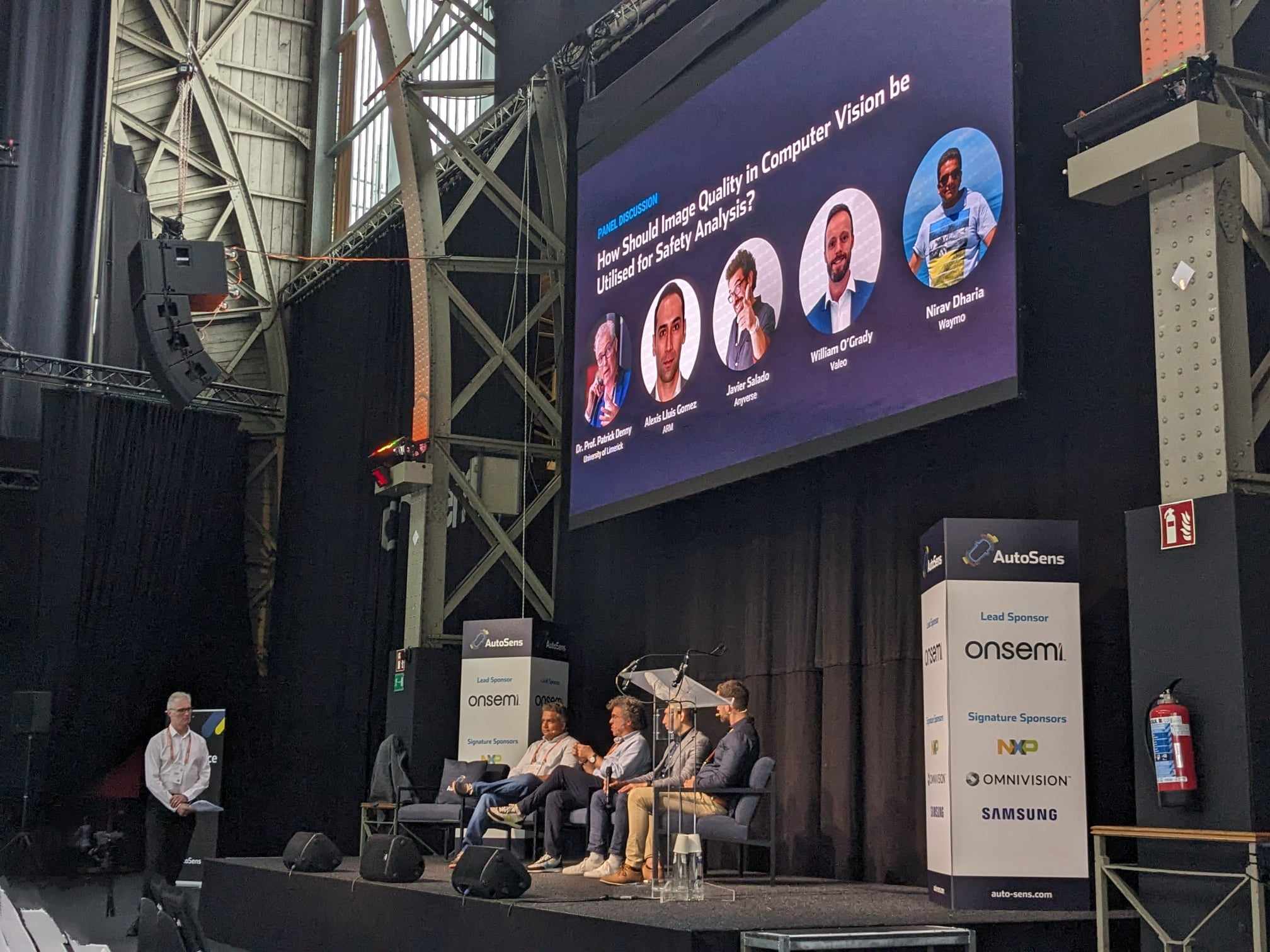
At AutoSens, Dr Trent Victor, Director of Safety Research and Best Practices at Waymo argued that this trepidation followed a historic trend where there was always a phase of cynicism during breakthrough developments, as demonstrated by the seatbelt debate in the 1970s. He stated that this sense of insecurity was generally routed in a lack of ‘emotional safety’, rather than ‘traditional safety’.
To combat these seemingly misplaced concerns, Waymo aims to follow the scientific method to present the public with robust evidence for confirming the safety of autonomous vehicles. Most recently, it partnered with insurance company, Swiss Re to publish research highlighting the safety benefits of Waymo’s autonomous vehicles compared to human drivers.
The results of this study revealed that while driving over 3.8 million miles across San Francisco and Phoenix without a human behind the wheel, the Waymo Driver reduced the frequency of property damage claims by 76% from 3.26 to 0.78 claims per million miles compared to human drivers. Furthermore, it completely eliminated bodily injury claims, compared to the Swiss Re human driver’s baseline of 1.11 claims per million miles.
What’s more, to overcome the problems with presenting complex safety technologies to the public, Waymo aims to deliver its results in an accessible and clear manner, such as through the use of images and GIFs.
The company’s recent success in gaining approval from the California Public Utilities Commission (CPUC) to expand its robotaxi operations in San Francisco arguably demonstrates the effectiveness of its safety data and presentation methods. Now, as the industry continues to develop more advanced technologies such as those showcased at AutoSens, it is expected that this data will continue to yield positive results to help increase trust in autonomous vehicles.
To conclude, automated technologies have the potential to significantly enhance safety on roads and eliminate human errors, such as those caused by speeding, fatigue, intoxication and distraction. However, their use pushes the boundaries of ‘emotional safety’ by requiring trust in non-human systems.
AutoSens highlighted how these concerns may be particularly prominent in light of the rapid developments in the industry. Indeed, William O Grady, Computer Vision Product Owner & Expert at Valeo underlined how the automotive industry has gone “from a big box of mechanical parts to very sophisticated software technologies and sensor technologies.”
As the industry continues to adapt to this change and establish the relevant regulations and approaches to deploying its advancements, it is thus understandable that the public will also take time to come to terms with how best to benefit from its safety potential.

